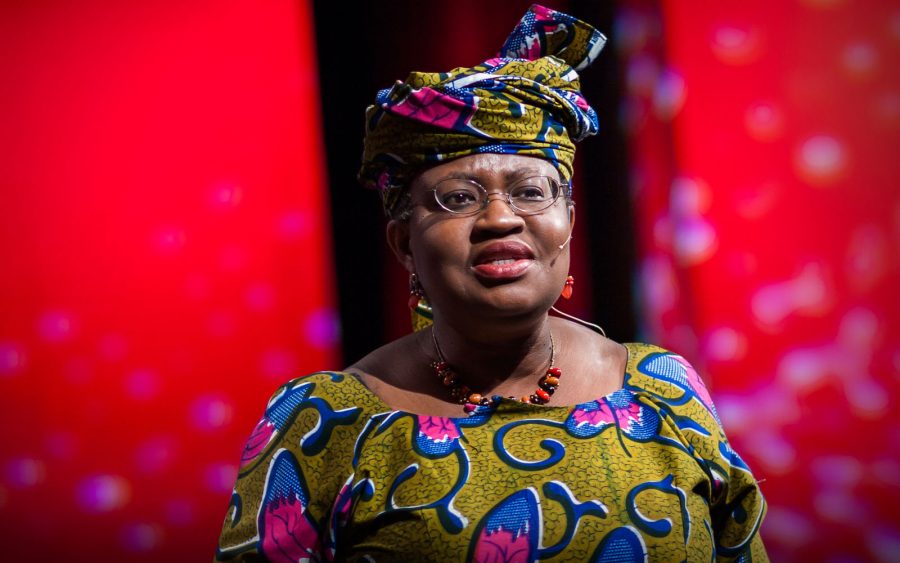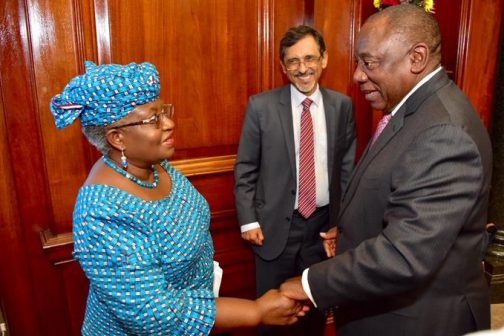“In the beginning of a change, the patriot is a scarce man, and brave, and hated and scorned. When his cause succeeds, the timid join him; for then it costs nothing to be a patriot.” Mark Twain, 1835-1910, in NOTEBOOK, 1935.
I was prepared for the objections which came through text messages in response to the first part of this advocacy for radical change which was proposed. Three main objections were clear. The first, said the power elite in Nigeria will never allow a good person to rule Nigeria. The second asked a question: which political party will field her? The third repeated the tiresome complaint that Nigeria will not allow an Igbo to be President. These are powerful objections which must be acknowledged; because they have merit. And, since they are very strong, they must be answered fully; if not for any other reason than to re-assure those who after reading are now prepared to join the campaign early. I will name groups which should join the campaign sooner or later. I only hope it will be sooner.
Having been involved in some changes considered impossible in the past, I want to start with that observation by my favourite American writer – Mark Twain. Let readers be reminded again that when that series of articles titled LAGOS STATE GOVERNORSHIP- 2015 CHRISTIAN AGENDA first started in December 2010 and ran to January 2011, calling for a Christian Governor, I was like the lone voice crying in the wilderness. I was called a day dreamer to my face by even sages and unbelievers. The earthly powers in Lagos had no plans for a Christian to succeed Fashola. The rest is history. Lagos had Ambode in 2015 after an election in which the two political parties featured Christian candidates. Today Sanwo-Olu is Governor. One with God is always a majority anytime.
Part one ended with the statement “You are not God” – as my answer to those who declare that something is impossible. Each time I hear someone say something new is impossible, what comes to my mind is the observation by Napoleon Bonaparte, 1769-1821, who said the word “impossible” does not or should not exist. I agree with him. Until all those who desire a particular change put all their hearts and souls into the struggle, nobody knows what is “impossible”. At any rate there are other reasons why the doubters are wrong.
“From factions, APC will break into pieces.”
Buba Galadima. SUNDAY VANGUARD, July 4, 2020.
Galadima was one of the founding fathers of the political party called All Progressives Congress, APC. He has since left the party. That is part of the story. APC, at its birth could not have qualified as a political party based on the definition by Edmund Burke, 1729-1797: “Party is a body of men united for promoting by their joint endeavours the national interest, based upon some particular principle in which they are all agreed.” There was no agreement.
“Alliances are held together by fear; not by love.”
Harold Macmillan, 1894-1986, VANGUARD BOOK OF QUOTATIONS, p 9.
By contrast, the APC was a mere conspiracy to seize power based on the hidden ambitions of two of the founders. First, we know that the four legacy parties which fused in April 2013 were: Action Congress of Nigeria, ACN, All Nigeria Peoples Party, ANPP, All Progressive Grand Alliance, APGA, and the Congress for Progressive Change, CPC. They were joined in November of that year by n-PDP – a faction of the Peoples Democratic Party. There is no need at this point to go into more details about the formation of the APC. It was an alliance of groups which had few, if any, “principle in which they are all agreed”. The grand alliance was formed out of fear that most of them will spend their days out of the corridors of Aso Rock. Nothing more elevating united them. But, they successfully peddled the lie of a progressive change to Nigerians and to themselves. But, history never allows any contraption based on fraud to last.
“All political parties die at last of swallowing their own lies.”
Dr John Arbuthnot, 1667-1735, VBQ p 191.
While the others were busy working on the “constitution”, two of the leaders stepped aside and forged their own separate agreement – unknown to other members of the alliance. The leader of the ACN would support the leader of the CPC to emerge the Presidential candidate. In turn the co-conspirator would select his partner in alliance betrayal to be the Vice President. But, how many times have we repeated it. “Men make history; but not just as they please (Karl Marx, 1818-1883, VBQ 93). Thus, right from its birth, a faction consisting of two, was created in the political association. It would not be the last time factions will develop which now threaten the party’s existence. Mark my words; the APC is finished as a formidable political party. The current Caretaker Committee charged with re-constituting the party will labour in vain. The factions within the party are so deeply antagonistic, henceforth any meeting will resemble that of Sicilian Mafia which everybody attends by packing a revolver under his belt.
“The most common and durable source of factions has been the various and unequal distribution of property.” That was the verdict of James Madison, 1751-1836, one of the Founding Fathers of America. While the APC handled opposition admirably, it was unable to manage victory as well. The cracks are now too deep to paper over. The factions which will destroy the APC are here to stay. Buhari, as agreed, became Presidential candidate. The attempt to present his Vice President candidate met stiff resistance ostensibly on account of the rejection of a Muslim-Muslim ticket. One co-conspirator got his wish; the other failed. That was not part of the original script – despite all the attempts to put up a brave face. It was not the last time the loser’s party will be treated badly.
The APC won the election – mostly on the strength of the funds and media support provided by the Southern members of the coalition, mostly ACN, and one major Northerner. Hardly anybody from Katsina state or Daura was seen among the frontline warriors throughout the campaign. Sixteen of the first twenty appointments by the newly-elected President went to the North; and most of the appointees were either from Katsina state and Daura or their in-laws and associates – starting with the all-powerful posts of Chief of Staff and Director General of DSS. The monkey-work-baboon chop business was the beginning of a lot of monkey business which formed the pattern of “unequal distribution of property” – meaning our national wealth.
“All animals are equal; but some are more equal than others.”
George Orwell, 1903-1950, in ANIMAL FARM.
The President, inadvertently or deliberately, created the biggest factions ever in any elected government from the start of his tenure – which lasted for the first four years. Some astute members of the conspiracy accurately read the hand writing on the wall. Without waiting for the party and the President, they seized control of the National Assembly, NASS; and held it successfully for the four years despite all attempts to dislodge them. There was an irony in that. While Jonathan lost control of the NASS towards the end, Buhari lost it right from the start. That was the first majour sign that this coalition would not last long. Remarkably, it survived to gain power for a second term. But, like the first term, the only beneficiaries have been Buhari and his close associates. The rest are now in the wilderness. The dissolution of the National Working Committee, NWC, by the President has now sent the conspiracy back to its beginning without a good candidate to rally round and with the members a lot wiser. None of the legacy members will again concede the Presidency to another without a serious fight. Buhari has taught all the other parties, especially the ACN, a lesson their leader(s) will never forget. Somebody in that group is rueing the day he made a deal with Buhari. Nothing has turned out the way he envisaged.
I went to this great length to draw the attention of those doubting the chances of a fresh candidate to the fact that APC, as “party”, is finished. Buhari will definitely want to choose his successor in the faction which will still call itself APC. But, only a lunatic or a desperado will want to run on Buhari’s dismal record. Yet, no APC candidate can distance himself from the disasters created eight years of Buhari rule. That, in a nutshell, is the situation with APC. Anybody who believes that the PDP will return to Aso Rock must have a different crystal ball than mine. But, bear in mind that mine had been tested for accuracy of prophecy. PDP can only win on one condition; and it is not my business to tell them. Just remember that APC did not exist until two years to the 2015 elections. The PDP is now just as fractured as the APC.
“Let us not seek the Republican answer or the Democratic answer, but the right answer”. Senator John Kennedy, 1917-1963, in Maryland, USA, Feb. 1958.
Kennedy became the first Catholic to be US President two years after delivering that address. A lot of his fellow Catholics told him he had no chance of winning. But, Americans thought differently. Like Kennedy, this is actually not a campaign for an Igbo woman per se as President for Nigeria. It is a campaign for the right candidate who just happened to be both. Further, it is not a party-based campaign. The most important things in life often have nothing to do with party. The monumental corruption we now experience have demolished Buhari’s anti-corruption credentials. Our cardinal problem in 2023 will be the debt burden. If anybody has any other candidate who can help us better, they should bring him/her out. Until then, our future points to Okonjo-Iweala.
“In the end it will not matter to us whether we fought with flails or reeds. It will matter on which side we fought.” GK Chesterton, 1874-1936, VBQ p 60.
I am under no illusion that male politicians will give up power easily. Power has to be fought for by those desiring real transformation of our society. Strategies are required; so are foot soldiers. Next week, I will close this series by pointing out those I expect will be on the frontline of this struggle. They must be sick and tired of our present crop of politicians who have nothing more to offer.
Follow us on our social media platform
Instagram: @delesobowalefranklyspeaking, Twitter:@DrDeleSobowale.
# FIGHT COVID-19 * WEAR MASKS * KEEP DISTANCE * STAY ALIVE #


